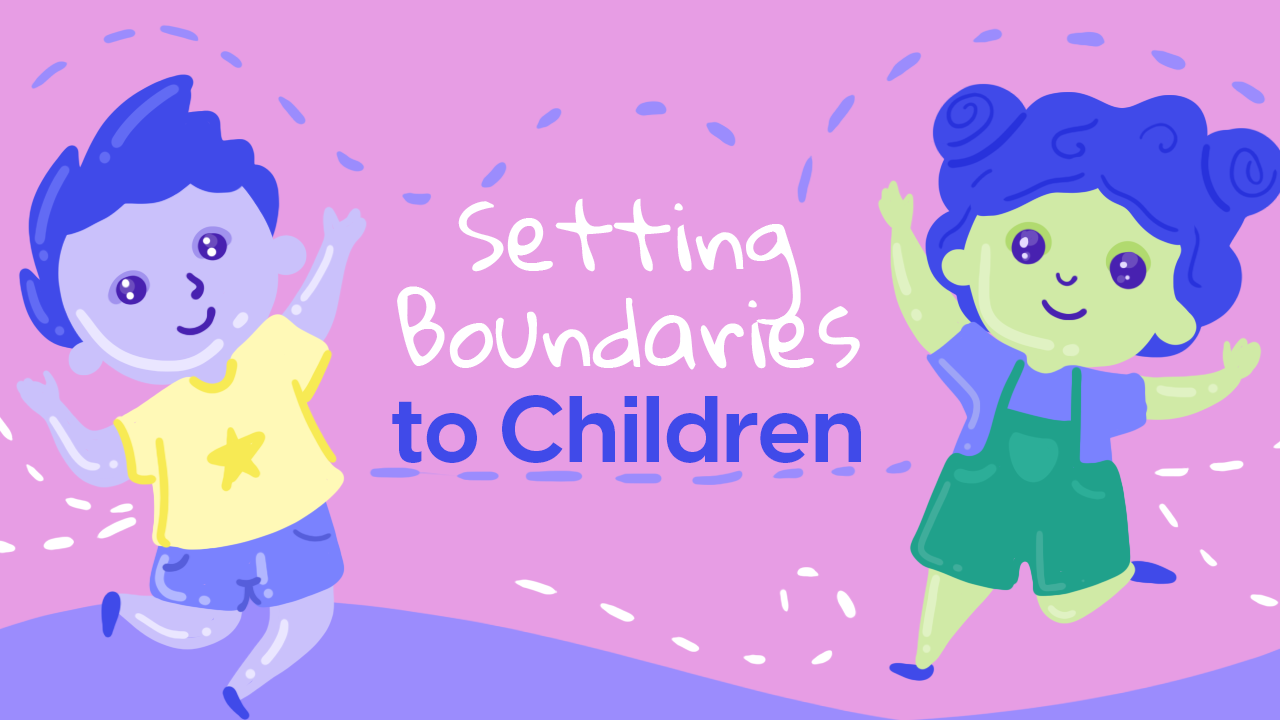
Start feeling better today!
Connect with your therapist today and take control of your life like our 850.000 happy clients.
Get StartedSetting Boundaries For Your Child
Do you find it difficult to set boundaries for your child? Do you get convinced and give them what they want when they cry or try to irritate you by constantly talking about something?
Just as the boundaries that physically separate countries, there are both tangible and intangible boundaries in human relationships. Boundaries help you organize your relationships with friends and family and protect yourself.
The relationship between parent and child has a closer and more intimate nature than the relationship with friends and family. Children are in a close relationship with their parents, both in the womb and after they are born. As a parent, you can think of the boundary as the line you draw around you to define where your child ends and begins1.
A child who enters into a borderless relationship with their parents for all their physical and emotional needs after they are born continues to test the limits of their parents, even if they know that they can meet their needs on their own in the later stages of life2.
Indicators of Children Crossing Boundaries
In the close relationships you have with your children, you may have difficulty recognizing what boundaries they are testing and crossing. You can read examples of boundary crossing in children below:
- Not knocking on the door
- Interrupting
- Violating privacy
- Asking others to do things they can do on their own
- Invading the private lives of parents
- Throwing a tantrum when they don't get what they want
So what can be done to manage children's relentless testing of boundaries in a healthy way?
The Role of Parents in Children's Crossing Boundaries
Children may also have difficulty learning to protect boundaries after stepping into a world without them. The role of parents in this regard is undeniable. Parents play an important role in children's learning and keeping boundaries, sometimes by what they do and sometimes by what they don't do.
You can blur the boundaries for your child when:1
- You do something for them that they can or should do for themselves
- You constantly question and judge your child about what they are doing
- You make your child the focus of your life and ignore yourself
- You share too much about your life with your child and act like a friend rather than a parent
- You overreact to your child's feelings
- You sympathize and own their feelings rather than empathize with them
Ways to Set Healthy Boundaries For Children

Be Clear About Boundaries
You can clearly state the situational do's and don'ts, rather than laying down general rules3, 4.
Be Consistent When Setting Boundaries
The boundaries you clearly state should not be changed by children's attempts at boundaries. Being consistent now is important for the child's learning of boundaries and expectations about future boundaries3, 4.
Focus on Yourself, Not Your Child
Constantly controlling your child so that the boundaries you want to set for your children are not crossed can cause tension between the parent and the child, depending on the child's developmental period. Conflicts and even stubbornness can arise from this tension.
One of the most important steps in setting boundaries as a parent is to not give up your boundaries to control your child, because when you focus on controlling him, you may actually overstep your own boundaries. It's also important to be a role model when teaching your child their own boundaries1.
Don't Have Perfectionistic Expectations
Don't expect the rules and boundaries you set for your child to be followed to the letter. As an adult, you can't bend to the rules you set at work or with your spouse, and you have to deal with getting out of your position that comes from outside factors.
You can support what your child is capable of, rather than have perfectionistic expectations for your child who is just discovering boundaries2.
Communicate Effectively
The way to set boundaries for your children is to communicate with them. If you communicate with them while keeping your boundaries, you can be a role model for them to respectfully express their expectations and needs, that is, to protect their boundaries2.
Try to Empathize
You can ask your children how the other party feels when they have a problem in their circle of friends or boundaries with you, when someone else violates their boundaries, or you can ask them to share with you how they feel when their boundaries are violated. This way, you can help them think more about experiencing and causing negative emotions5.
Use Reward and Punishment System
Reward-punishment is an important method to ensure behavior change in children. To support boundary-preserving behavior, you can reward the child (for example, by buying them chocolate) and punish the child for attempts to cross boundaries (for example, not going to the park that day or putting off buying a toy they want)4.
Emphasize That Boundaries Are Mutual
Boundaries are not just a set of rules to prevent your child. Protecting both your child's and your own boundaries will make it easier for you to be aware of your physiological and psychological needs and to regulate your emotions, thoughts, and behaviors in different roles and contexts5. Setting boundaries for your child while emphasizing that the boundaries are mutual may help them to adapt more easily.
Be a Role Model for Your Children
When children are born, their first social environment is their family. Therefore, they are quite inclined to learn by modeling the behaviors they see in the family. When you act as an example to set boundaries and protect your boundaries, it will be easier and more useful for you to set boundaries and help your child to protect them.
The Importance and Benefits of Setting Boundaries for Children

1. Empathy
The boundaries set for children also determine the boundaries of social interaction. When children learn to set boundaries for themselves, they also learn to respect others. Therefore, being able to empathize makes it easier for the child to understand what others want and need, as well as what they themselves want and need5.
2. Trust
It is difficult for a child to exist without knowing what to do and what not to do in a world full of boundaries, because in a world full of uncertainties and many things that they have not learned, the child needs knowledge and a boundary to set for themselves. Therefore, boundaries will be useful to prevent children from feeling insecure and to reinforce their sense of security. Boundaries will ensure routine and predictability for them2.
3. Self Perception
Not setting boundaries for children lowers or distorts their self-perception. The inability of a person to learn boundaries as a child can lead to a narcissistic personality structure.
As a result, the child may believe that everyone and everything around them is obligated to serve their wishes and needs, and they may be negatively affected when they do not get what they want2. For a healthy personality and sense of self, it is important for children to learn what their boundaries are.
4. Balance of Power
When parents do not set clear boundaries or allow their children to control what needs to be decided at home by adults, the power balance shifts towards the child. This is harmful to both parents and children2.
5. Self Discipline
Setting boundaries for children contributes to improving their self-discipline skills. A child who grows up with healthy boundaries can learn what they should and should not do, and in the future, they can develop strategies for successfully controlling their own feelings, thoughts, and behaviors6.
6. Coping Skills
Setting boundaries teaches children to cope with the negative emotions and experiences they face and have difficulty coping with when the boundaries are set. Helping the child to experience and understand this emotion and develop coping skills against it, instead of giving up on the child who has negative experiences when faced with boundaries, is useful for the healthy development of the child6.
Conclusion
One of the most important benefits of the close relationship between the parent and the child is the boundaries, and it is very difficult to set, protect, prevent them from being violated, and adapt to them. However, this challenging process is a journey that is likely to result in many skills and positive experiences for both parents and children.
If you have trouble setting limits for your child or dealing with the problems that come with it, online therapy with Hiwell's expert psychologists can support you in this journey to a healthier relationship with your children!
Sources
- https://www.empoweringparents.com/article/parental-roles-how-to-set-healthy-boundaries-with-your-child/
- https://www.verywellfamily.com/whos-the-boss-how-to-set-healthy-boundaries-for-kids-3956403
- https://pathways-psychology.com/how-to-set-limits-for-children/
- https://childmind.org/article/teaching-kids-boundaries-empathy/
- https://childmind.org/article/teaching-kids-boundaries-empathy/
- https://www.verywellfamily.com/reasons-why-it-is-important-to-set-limits-with-kids-1094884





